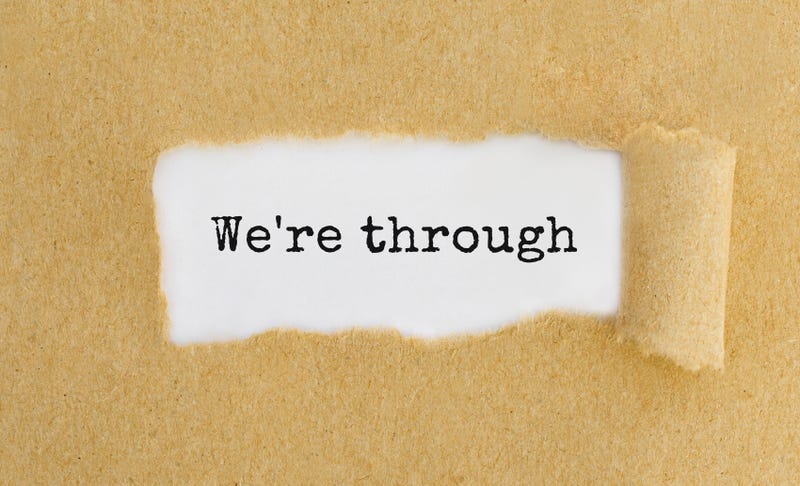Myth of Closure in Relationships

In our last #TheRootAfterDark Twitter chat, we discussed the differences between “baggage” and “experience” and how to tell the difference between the two. A recurring theme among the people who admitted to still carrying around baggage from previous relationships was the idea that most of them were still looking for “closure.”
Closure is a funny thing. It looks like different things to different people, but the ultimate goal is to feel some sort of resolution to a relationship that may have ended badly. The sad fact is, most people will never experience the closure they are looking for, and even if they do get closure, it won’t come in the form they wanted or expected.
For some people, closure means having the person who wronged them admit to said wrongdoing and apologize. That kind of closure almost never happens, and if it does, it is usually not on the timetable the person needs in order to reach a space of healing.
Another type of closure is revenge closure. People either want to get back at the person who wronged them or want to witness something bad happening to that person.
That kind of closure is empty. It’s not really closure, and if you are the person inflicting the damage, it doesn’t leave you with a good feeling afterward. It’s a false sense of closure, because in the end you are still hurting and still lacking. You really didn’t get what you thought you wanted after all.
Closure is something that you will often have to create for yourself and view as a part of the process of moving on.
Think of it as ending a chapter in a book. You have to decide that you want to be done, and then be resolute about it.
You can’t be like Lot’s wife looking back, because honestly—that’s just going to leave you feeling salty.
Figure out what it is about the ending of the situation or relationship that is lingering with you and work your way back from there. How can you resolve your own feelings about the issue? Is there work you can do on yourself to make you grow from this?
Think about what it is you think closure would look like. Is it a conversation in which you tell the person everything you ever thought about him or her? If so, write it all down on a piece of paper and let it out.
Does closure come in the form of a big apology from that person? Write your own apology to yourself, wherein you show yourself grace and forgiveness and create a plan to move forward and avoid having that experience again (if possible).
If closure looks like revenge to you, figure out why you need that sort of satisfaction. Why isn’t walking away enough? Why isn’t talking through it enough?
If you are harboring a need to get back at someone, there is a huge underlying issue, and that is what should be addressed—not a revenge plot.
Remember that even though closure looks like different things to different people, we all want the same endgame: We want to feel healed enough to be able to move on.
The best kind of healing and growth is the kind we make for ourselves. It is not dependent or reliant on another person. It is whole, and it makes us whole.
The satisfaction that comes with knowing that you didn’t need any part of the person you are leaving behind in order to move forward with your life will be the greatest closure you will ever know.
Comments
Post a Comment